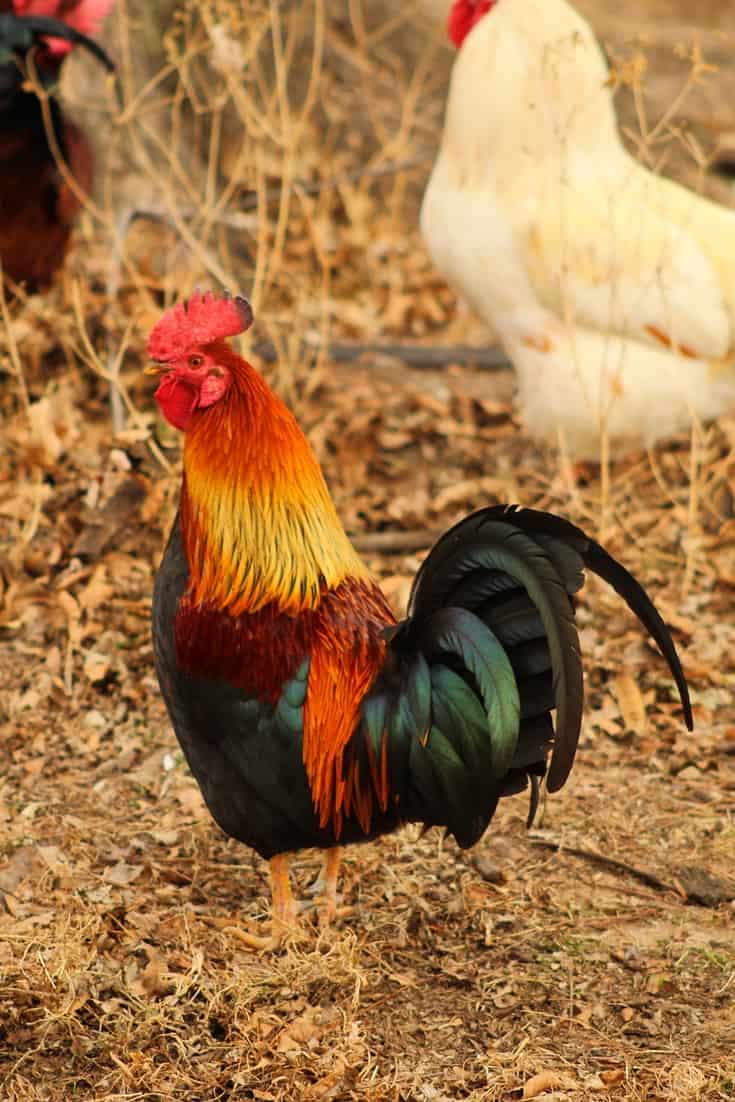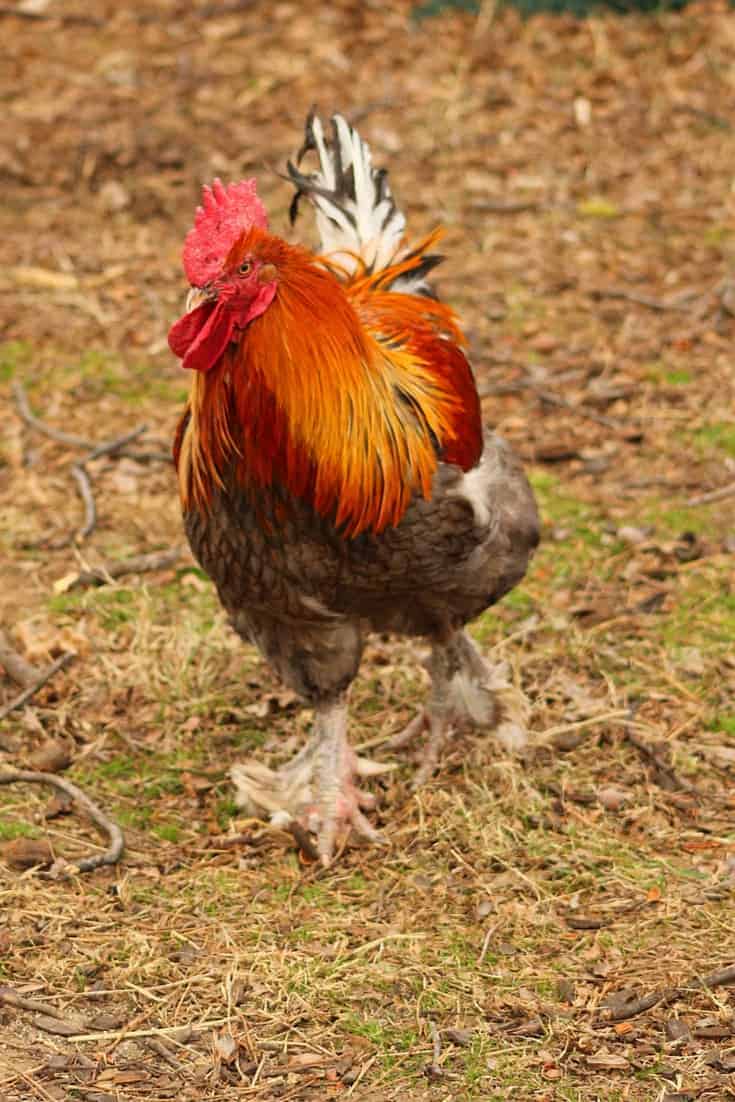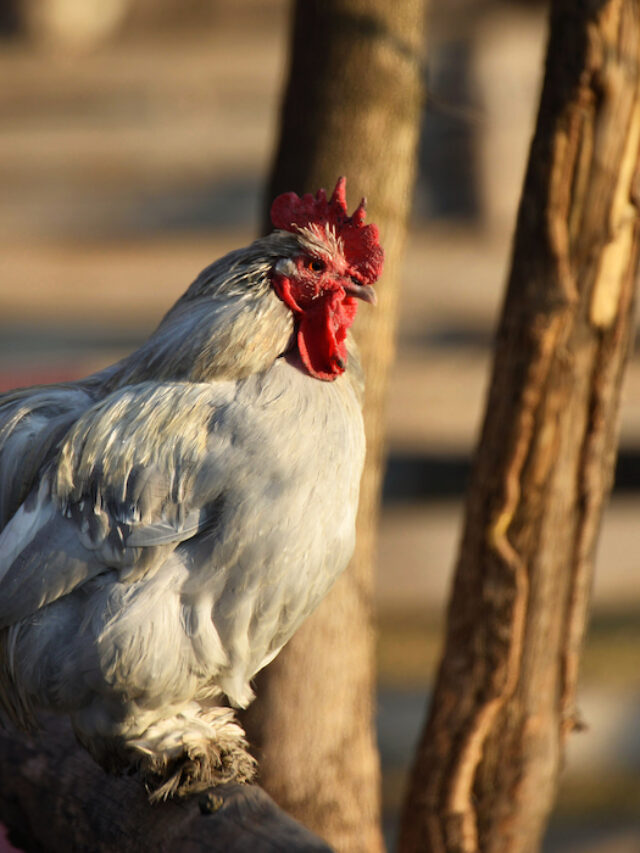Chickens Produce Eggs Without Rooster: A Comprehensive Guide
Chickens produce eggs without rooster, and this fascinating biological process is a cornerstone of poultry farming worldwide. Whether you're a backyard chicken enthusiast or a commercial farmer, understanding this phenomenon is crucial for maximizing egg production. Chickens do not require the presence of a rooster to lay eggs, but there are nuances to this process that every chicken keeper should know.
For centuries, chickens have been domesticated for their eggs, meat, and companionship. The ability of hens to lay eggs without the need for fertilization is a natural occurrence that has been harnessed by humans for sustenance and commerce. However, not all eggs are the same, and the presence or absence of a rooster plays a significant role in determining the type of eggs produced.
In this article, we'll delve into the science behind egg production in chickens, explore the differences between fertilized and unfertilized eggs, and discuss the factors that influence egg-laying. By the end, you'll have a complete understanding of how chickens produce eggs without rooster and how this knowledge can benefit your poultry management practices.
Read also:Jordan Close The Rising Star In The World Of Football
Table of Contents
- The Biological Process Behind Egg Production
- Fertilized vs Unfertilized Eggs: What's the Difference?
- The Role of Rooster in Egg Production
- Understanding the Egg-Laying Process
- Factors Affecting Egg Production
- Health Benefits of Eggs
- Commercial Farming Practices
- Backyard Chickens and Egg Production
- Common Questions About Chicken Egg Production
- Conclusion
The Biological Process Behind Egg Production
Chickens produce eggs without rooster due to the natural biological processes that occur within the hen's reproductive system. The ovaries of a hen continuously develop ova (egg yolks), which eventually move through the oviduct to form a complete egg. This process is driven by hormonal signals that regulate the reproductive cycle of the chicken.
The absence of a rooster does not hinder the egg-laying process. In fact, most commercially produced eggs are unfertilized, meaning they are laid by hens that have never encountered a rooster. These eggs are safe for human consumption and are indistinguishable from fertilized eggs in terms of nutritional value and taste.
Understanding the Oviduct
The oviduct is a crucial part of the egg-laying process. It is a long, tube-like structure where the egg yolk travels and undergoes various stages of development. Here's a breakdown of the stages:
- Infundibulum: The site where fertilization would occur if a rooster were present.
- Magnum: The area where the egg white (albumen) is added to the yolk.
- Isthmus: The shell membrane forms here.
- Shell Gland: The hard shell is deposited around the egg.
- Vagina: The final stage before the egg is laid.
Fertilized vs Unfertilized Eggs: What's the Difference?
One of the most common questions about chicken egg production is the difference between fertilized and unfertilized eggs. While both types of eggs are laid by hens, their formation and purpose differ significantly.
Fertilized eggs are produced when a rooster mates with a hen, resulting in the fertilization of the egg yolk. These eggs have the potential to develop into chicks if incubated under the right conditions. Unfertilized eggs, on the other hand, are laid by hens that have not mated with a rooster. These eggs are sterile and cannot develop into chicks.
Identifying Fertilized Eggs
There are no visible differences between fertilized and unfertilized eggs when they are first laid. However, if you crack open a fertilized egg, you may notice a small white spot called the germinal disc, which indicates the presence of a developing embryo. This spot is not present in unfertilized eggs.
Read also:Keith Farmer The Visionary Leader Redefining Agricultural Innovation
The Role of Rooster in Egg Production
While chickens produce eggs without rooster, the presence of a rooster is essential for producing fertilized eggs. Roosters play a vital role in the reproductive cycle of chickens by mating with hens and fertilizing their eggs. However, not all chicken keepers require fertilized eggs, especially those who focus on egg production for consumption rather than breeding.
In commercial egg farming, roosters are rarely kept because unfertilized eggs are more cost-effective to produce. For backyard chicken enthusiasts, the decision to keep a rooster depends on personal preferences and the purpose of the flock.
Understanding the Egg-Laying Process
The egg-laying process is a fascinating biological phenomenon that occurs daily in hens. On average, a healthy hen can lay one egg per day, depending on factors such as age, breed, and environmental conditions. The process begins with the development of the egg yolk in the hen's ovaries and continues through the oviduct until the egg is laid.
Here's a step-by-step breakdown of the egg-laying process:
- Ovulation: The egg yolk is released from the ovary into the oviduct.
- Fertilization (optional): If a rooster is present, the egg yolk may be fertilized in the infundibulum.
- Egg White Formation: The egg white is added in the magnum.
- Shell Membrane Formation: The shell membrane is formed in the isthmus.
- Shell Deposition: The hard shell is deposited in the shell gland.
- Egg Laying: The fully formed egg is laid through the vagina.
Factors Affecting Egg Production
Several factors can influence the egg-laying process in chickens. Understanding these factors is essential for maximizing egg production and ensuring the health of your flock. Below are some of the most important factors:
Nutrition
A balanced diet is crucial for maintaining optimal egg production. Hens require a diet rich in protein, calcium, and vitamins to produce high-quality eggs. Deficiencies in any of these nutrients can lead to reduced egg production or poor egg quality.
Age
Hens typically begin laying eggs at around 18-24 weeks of age. Egg production peaks during the first year and gradually declines as the hen ages. Older hens may still lay eggs, but the frequency and quality may decrease.
Lighting
Adequate lighting is essential for stimulating egg production. Hens require approximately 14-16 hours of light per day to maintain optimal egg-laying. In the winter months, supplemental lighting may be necessary to compensate for shorter daylight hours.
Health Benefits of Eggs
Eggs are a nutrient-dense food that provides a wide range of health benefits. Whether they are fertilized or unfertilized, eggs are an excellent source of protein, healthy fats, and essential vitamins and minerals. Below are some of the key health benefits of consuming eggs:
- Protein: Eggs are a high-quality source of protein, which is essential for muscle growth and repair.
- Vitamins: Eggs are rich in vitamins A, D, E, and B12, which support immune function and overall health.
- Minerals: Eggs contain important minerals such as calcium, iron, and zinc, which are vital for bone health and energy production.
- Antioxidants: Eggs contain antioxidants like lutein and zeaxanthin, which support eye health and reduce the risk of age-related macular degeneration.
Commercial Farming Practices
Commercial egg farming is a highly specialized industry that focuses on maximizing egg production while maintaining the health and welfare of the chickens. Large-scale farms often use automated systems to monitor and control factors such as lighting, temperature, and nutrition, ensuring optimal conditions for egg-laying.
In commercial farming, chickens produce eggs without rooster in vast numbers, as fertilized eggs are not necessary for consumption. This practice allows for efficient production and distribution of eggs to meet global demand.
Challenges in Commercial Farming
Despite its efficiency, commercial egg farming faces several challenges, including animal welfare concerns, environmental impact, and disease management. Many farms are adopting sustainable practices and improving living conditions for chickens to address these issues.
Backyard Chickens and Egg Production
Raising backyard chickens has become increasingly popular in recent years, with many people choosing to keep chickens for their eggs, companionship, and educational value. Backyard chicken keepers often appreciate the ability to control the environment and diet of their flock, resulting in high-quality eggs.
For backyard chicken enthusiasts, chickens produce eggs without rooster just as effectively as in commercial settings. However, the decision to keep a rooster depends on personal preferences and local regulations.
Tips for Backyard Chicken Keepers
Here are some tips for maximizing egg production in your backyard flock:
- Provide a balanced diet rich in protein and calcium.
- Ensure adequate lighting and ventilation in the coop.
- Monitor the health of your chickens regularly and consult a veterinarian if necessary.
- Keep the coop clean and free of pests to prevent disease.
Common Questions About Chicken Egg Production
Here are some frequently asked questions about how chickens produce eggs without rooster:
Do Hens Need a Rooster to Lay Eggs?
No, hens do not need a rooster to lay eggs. Chickens produce eggs without rooster as part of their natural reproductive cycle. The presence of a rooster is only necessary for producing fertilized eggs.
How Often Do Chickens Lay Eggs?
A healthy hen can lay one egg per day, depending on factors such as age, breed, and environmental conditions. Egg production may decline with age or during periods of stress.
Are Unfertilized Eggs Safe to Eat?
Yes, unfertilized eggs are safe to eat and are indistinguishable from fertilized eggs in terms of nutritional value and taste. Most commercially produced eggs are unfertilized.
Conclusion
Chickens produce eggs without rooster as part of their natural biological process. Understanding this phenomenon is essential for anyone involved in poultry farming, whether on a commercial or backyard scale. By providing optimal conditions for your flock, you can maximize egg production and ensure the health and welfare of your chickens.
We encourage you to share this article with fellow chicken enthusiasts and leave a comment below if you have any questions or insights. For more information on poultry farming and egg production, explore our other articles on the site. Together, let's continue learning and improving our practices for a sustainable future!


